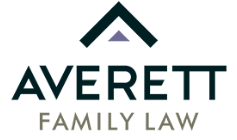PROBATE LAW
Probate Law in North Carolina
Probate law covers the payment of debts and distribution of property (settling the estate) after an individual’s death. In North Carolina, as in most other states, the individual will name an executor in their will. The executor (sometimes called the personal representative) has legal and personal responsibility to ensure the estate is settled properly. The executor will pay all known debts and collect and distribute all assets according to the will. If an executor was not named (or is not available), a family member or close friend can apply to the court to be the administrator.
Probate is not always simple
Probate laws can be complex. They may be impacted by the size of the estate (small estates may not require a full probate proceeding) or the naming conventions on jointly held accounts or property (rights of survivorship). The probate process may also be impacted based on whether any assets are set up in a trust, and whether there is a business involved.
The probate process
A high level outline of the probate process is shown below:
- The Executor opens proceedings in the North Carolina Superior Court in the county where the deceased lived.
- An inventory of assets and debts is conducted; this includes federal, state and local taxes owed.
- Notify all creditors and request payoffs for monies owed.
- Set up a bank account to take incoming payments and pay claims, estate and funeral expenses.
- Pay all valid debts owed to creditors. If funds are not sufficient, the executor will arrange to sell assets to pay the debt.
- Any assets remaining are divided according to the will. If the individual died without a will, the court will determine how the assets are distributed.
- Finalize the accounting and close the probate proceeding.
If you have been named as an executor or need a probate attorney in Chapel Hill, Durham, Pittsboro, Sanford, Hillsborough, Siler City or anywhere in Orange, Chatham, Lee or Durham counties, North Carolina, please give Averett Family Law a call.
Contested Wills
In North Carolina, anyone who is named in the current will, was named in a past will, or has an interest in the estate may dispute – or contest – the validity of the will. The two most common causes under which a will is contested are:
- The individual was not of sound mind when the will was created;
- Someone influenced the individual and directed the contents of the will.
The latest valid will (written, signed, witnessed, and notarized) will generally stand up under the law unless the person contesting the will can prove their case.
TIP: Once your will is finalized, we recommend reviewing and updating the document every two to three years or when you have a significant life change (marriage, divorce, birth of a child, etc.). You may wish to shred old copies and make sure your loved ones (and the executor) know where the most recent copy is kept and the name and phone number of your attorney (if you have one). If you are comfortable doing so, share the contents of your will with your loved ones so there are no surprises.
Living Probate
Should you anticipate one or more individuals might contest your will, North Carolina allows you to go through living probate. In this process, the will is submitted for probate and any claims or disputes must be filed while you are still alive and able to explain your decisions. Any contests are decided then and there.
